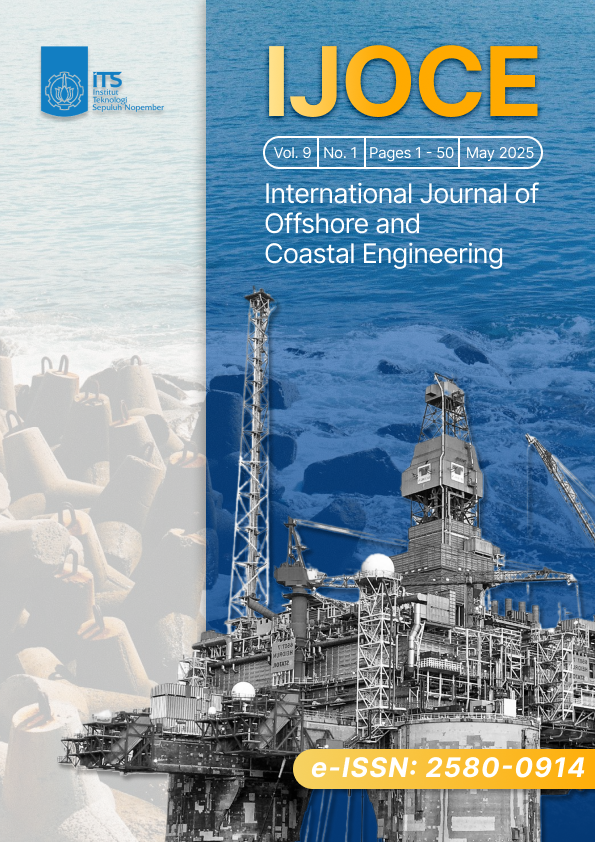Lazy Wave Flexible Riser Dynamic Responses Analysis with Variation of SPM Offset from PLEM on Operation Condition
Keywords:
Fatigue, Flexible Riser, Offset, Operation, SPMAbstract
The increasing use of flexible risers in oil and gas exploration
projects is a big challenge for engineers to design better riser
systems to improve further the efficiency and safety of exploration
and production activities in offshore oil and gas fields. SPM is
often used as an offloading facility connecting FSO or FPSO as
recipients of oil and gas products from subsea templates or wells.
Under operating conditions, SPM can move freely following the
movement of environmental loads. Drifting or changes in position
due to the load on the SPM can threaten the riser response,
whereas the riser response can be different whether the SPM is
moving or drifting in its stress or bending response. The results in
this study also contain the effect of this phenomenon on their
fatigue life. As a result, the difference in riser response due to the
distance from SPM to PLEM is that the farther the distance from
SPM from PLEM, the greater the stress response and bending
radius it has. Fatigue life also follows the same results, where the
farthest distance from the SPM configuration to PLEM has the
lowest fatigue life compared to the closest distance from the SPM
to PLEM configuration, with the highest fatigue life at 128.31
years and the lowest at 124.78 years.
Downloads
Published
How to Cite
Issue
Section
License
Copyright (c) 2025 International Journal of Offshore and Coastal Engineering (IJOCE)

This work is licensed under a Creative Commons Attribution 4.0 International License.






